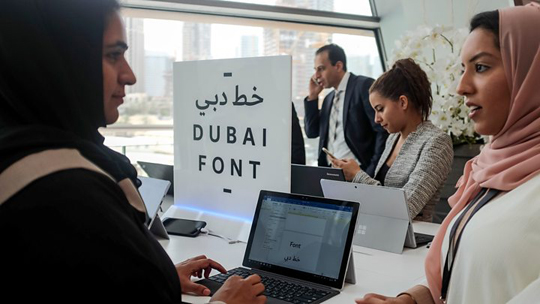Dubai, May 2: Dubai has become the first city in the world to get its own Microsoft font, the media reported.

Sheikh Hamdan bin Mohammed bin Rashid Al Maktoum, Dubai`s Crown Prince and Chairman of the Executive Council, launched the Dubai Font on Sunday, the Khaleej Times reported.
He directed government institutions all across the city to adopt the font, saying it is considered a positive shift that will boost the emirate`s competitiveness in smart technology.
"This should be a commitment from the Dubai government to guarantee the dissemination and success of this initiative on a local and global level," Sheikh Hamdan said, noting that the font is the new tool for a more tolerant and happy world.
The font, now available to more than 100 million users of Microsoft Office 365 around the world, is the first font to be created by a city and named after it.
Designed for more than 180 countries and 23 languages integrating Arabic and Latin typefaces, the Dubai Font, which will expand over the next phase to include more languages, is aimed to reflect the city`s symbols of tolerance, happiness and respect, enabling people to express, communicate and connect, reports the Khaleej Times.
The Executive Council of Dubai also enabled individuals to download the font from the website: www.dubaifont.com and integrate it into the system for free.
Sheikh Hamdan had directed the General Secretariat of the Executive Council in January 2016 to work on the design of a package of electronic fonts bearing the name of Dubai to include a distinctive font for the Emirate in both Arabic and English, later expanding to 21 other languages.
Nadine Chahine, Type Director and Legibility Expert at Monotype UK, led the design team of six who worked on developing the font.
The font, available in three styles as `Dubai`, `Dubai Medium` and `Dubai Light`, can be in italics, underlined and bold.





Comments
Add new comment